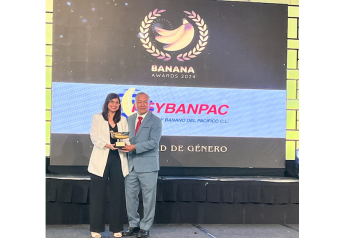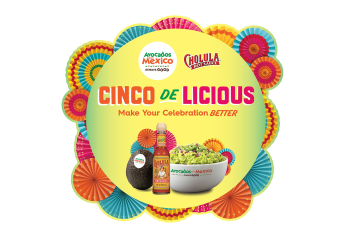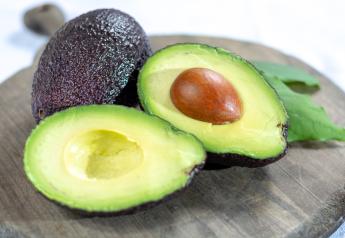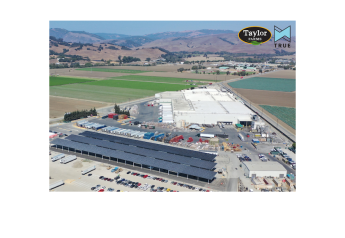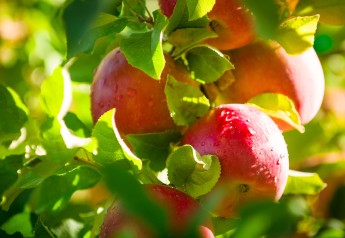Companies plea for reconsideration of USDA produce box bids
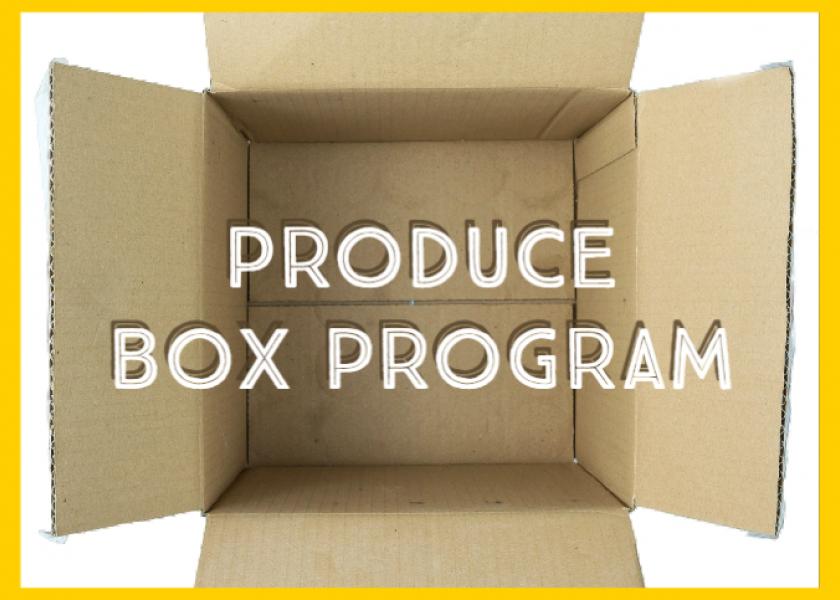
With a price tag of $1.22 billion and hundreds of contracts, the U.S. Department of Agriculture’s Farmers to Families Food Box Program is a massive endeavor to move fresh produce and other foods to needy families through food banks.
The list of contracts, announced May 8, includes many well-known produce companies who have established networks and a background of working with charities.
But questions immediately began circulating: How does a high-dollar events promoter pull down the largest contract ($39 million) in Texas? Why are companies without Perishable Agricultural Commodities Act licenses, warehouses, coolers or trucks receiving multi-million contracts, some well beyond the annual revenue of the company?
One West Coast distributor who asked for anonymity for this story wrote to the USDA, requesting reconsideration of its contract, noting that he discussed the situation with one of the companies in his area that received an award. That company’s distribution area is smaller and box price was higher.
“It seems as something of a travesty where two companies are given the majority of the award and (my company) could be destined for bankruptcy,” according to an e-mail from the distributor. “I am pleading with you to please make an award that keeps us in business and enables the distribution of food products to those that desperately need it.”
Marianne Hurley of Blue Sky Farms, Wendell, N.C., said its request was denied, although the organic farm is not a “Johnny-come-lately” to working with food banks and other nonprofits.
“Blue Sky Farms was founded 25 years ago, distributing to restaurants, schools, food banks and individuals,” Hurley wrote in an e-mail to The Packer. “We have our own fleet of refrigerated trucks. Our farm is certified organic and Harmonized GAP certified. I can go on with our accolades, but suffice to say, we are a reputable company with strong community ties.”
Companies contacting The Packer stressed this is not a “sour grapes” situation, but they have concerns with the ability of some awardees to meet the scope of their contract.
“To award a large contract to companies who have no logistic or produce experience only confirms speculation the award process is rigged and someone will milk the system for profits they can get and move on to another free-for-all,” Willie Cooper of Elnora Farms Inc. wrote in an e-mail.
Although Elnora Farms is a small grower, Cooper said his proposal included a list of 190 nonprofits in Florida and Georgia, and that he’s “OK” with losing a bid because it doesn’t meet government specifications, but he believes the farm demonstrated it was ideal to fit the needs of the Farmers to Families program.
United Fresh Produce Association president and CEO Tom Stenzel wrote to Bruce Summers, administrator of the USDA’s Agricultural Marketing Service, which is overseeing the contracts, with a list of 15 questions.
Stenzel said the industry recognizes the size and speed of the undertaking, but said there is a “genuine effort to ensure integrity and confidence in the program and that fresh produce actually gets to those in need in an efficient and cost-effective way,” according to Stenzel’s letter.
Michael Muzyk, president of Baldor Specialty Foods, the Bronx, N.Y., and United Fresh chairman, lauded the USDA for bringing farmers, vendors and distributors together to repair strained food channels.
“Many of the programs being enacted or the things we are doing as business people are ‘firsts,’ so obviously there’s a learning curve and nothing is a perfect science,” Muzyk said.
“There will be lessons learned for next time. But right now we all share the common goal of wanting to help the food insecure — and also keep the food chain intact for when we return back to normal. Lots of lives are depending on it.”
Mike Edwards of Mac Edwards Produce & Co. Inc. of Doral, Fla., said at least eight of the Southwest region contract recipients for produce boxes appear not to have PACA licenses.
His company services the fifth- and seventh-largest school districts in the country, along with three other districts, for a total of 1,000 sites taking deliveries multiple times a week, and another 750 daily drops at foodservice operators.
“Our company spends hundreds of thousands of dollars a year on our SQF food safety systems, yet this solicitation was awarded to what looks like roadside fruit stands and start-up produce companies?” Edwards said in an e-mail to The Packer.
Brent Erenwert, CEO of Brothers Produce, Houston, said the list of contract awardees has a number of industry unknowns who will be scrambling for labor to fulfill the contracts. To many companies treading water, the produce box was a lifeline.
“We’re jumping from lily pad to lily pad,” Erenwert said. “And you know, we’re trying to catch our breath every couple of weeks here. ... This wasn’t about the money and making money. It was about surviving and sustaining.”
Gregorio Palomino, CEO of CRE8AD8 (Create a Date), the San Antonio events company with the $39 million contract, said in a Facebook post the company will be hiring up to 125 people starting May 15, with personnel needs in the logistics, production, assembly, transportation and line worker areas.
“We didn’t know the potential or even to what extent we could help, but we saw an opportunity to do some good during this challenging time and took a chance, we had no idea we’d be asked to help on this level,” Palomino wrote. “It’s truly awesome.”
Companies that e-mailed The Packer said they expect to be contacted as subcontractors to the companies that received the bids that were passed over. Erenwert said companies will be very cautious doing business with firms that are new to moving large quantities of fresh produce.
“You have no guarantees you’re going to get paid,” Erenwert said. “And it’s not like everybody’s, you know, sitting fat and happy right now, with where the receivables are.”
The USDA was under a tight deadline and Alex DiNovo, president and chief operating officer of DNO Produce, Columbus, Ohio, said there was a tradeoff with the speed at which the contracts were awarded and the mistakes made in the process.
“At the end of the day, this is certainly better for the industry as a whole than if nothing would have been done at all,” DiNovo said. “My hope is that with any future solicitations, the USDA will take additional time to review proposals more thoroughly, recognize the offeror’s capabilities better, and understand where the needs are the greatest.”
Editor Tom Karst and Northeast Editor Amy Sowder contributed to this story.
For more coverage of what companies are doing to meet customers' needs during the pandemic, see The Packer's COVID-19 webpage.
Related stories:
Industry questions Farmers to Families Food Box awards


